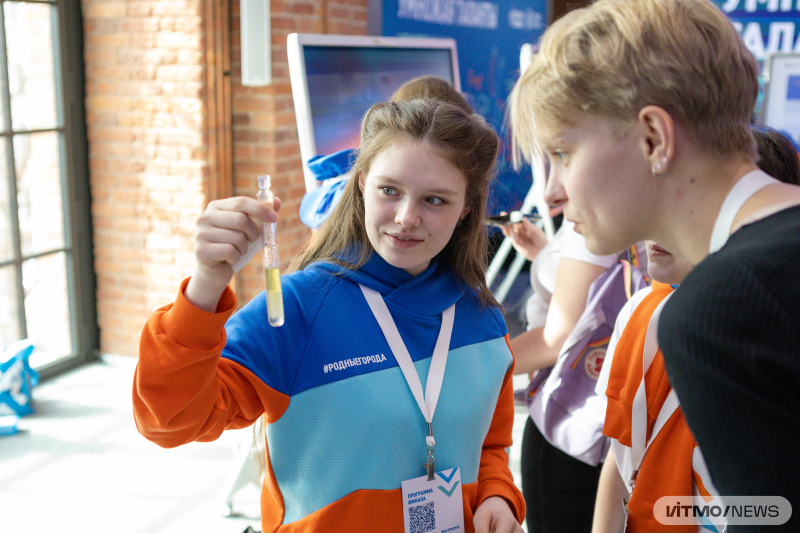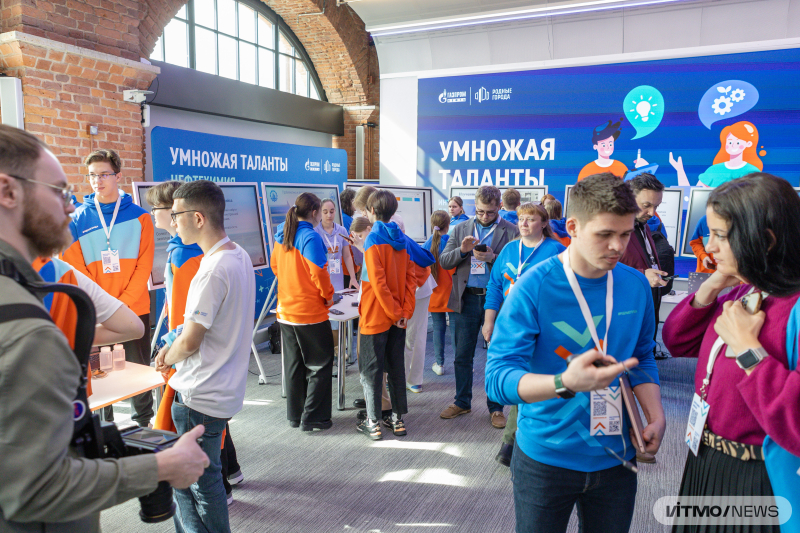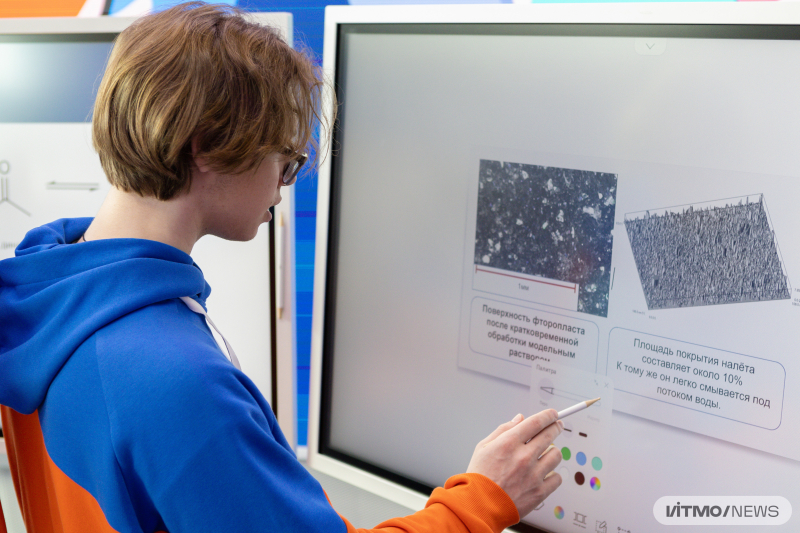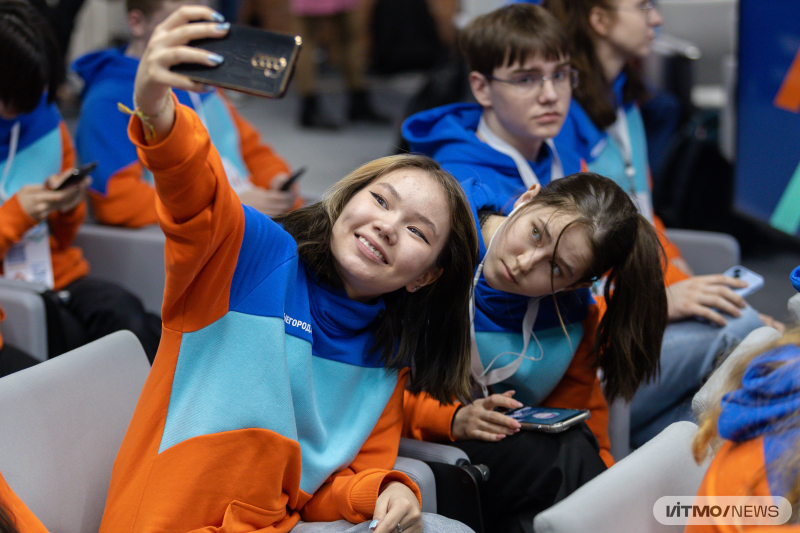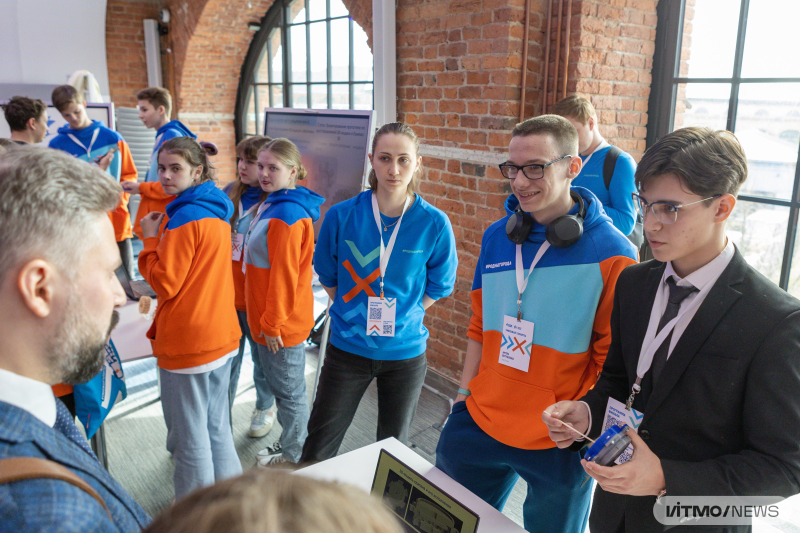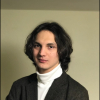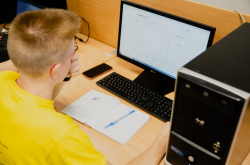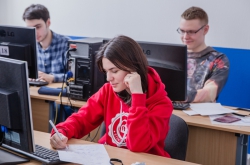The contest Multiplying Talents has been hosted by Gazprom Neft in collaboration with universities from six Russian regions since 2015 as part of the corporate social responsibility program Home Towns. It is one of Russia’s biggest projects that support gifted high school students. A victory can grant up to ten bonus points when applying to the country’s leading technical universities, such as ITMO, and offers students unique opportunities at the start of their careers.
This competition differs from most scientific contests in Russia in that its participants have to apply their knowledge to solve not just theoretical but also practical problems from the oil and gas industry.
“Bonus exam points are nice, but the true value of this competition is in how it offers an opportunity to work on real projects as part of a team. The sooner a prospective student gets used to this format, the more chances they have to join an R&D team or a startup as early as in their first or second year at university. This is what collaboration between ITMO and Gazprom Neft is all about – students working on research that has practical industrial application,” says Daria Kozlova, ITMO's First Vice Rector and the head of its 2030 Development Strategy.
The contest in detail
This year, the contest drew more than 3,000 students of grades 8 to 11 from eight Russian regions: Moscow and St. Petersburg; the Omsk, Tyumen, Tomsk, and Orenburg Oblasts; and the Khanty-Mansi and Yamalo-Nenets Autonomous Okrugs. Participants were divided into two age groups, one for the students of grades 8 to 9, and another for students of grades 10 to 11.
Tracks. The contestants could choose one of four tracks:
-
Engineering
-
Petroleum Chemistry
-
IT in Oil & Gas Industry
-
Mathematics
The former three tracks consisted of both individual and group tasks (designed for teams of three), while the Mathematics track only offered individual tasks.
Stages.
The contest had several stages. First, students had to register via its website, pick their tracks and study modern petroleum and digital technologies during online courses. Then, in the first stage of the competition, they were presented with individual tasks. In the second stage, the participants of the first three tracks were split into teams and worked on theoretical solutions for real engineering problems. The best teams then went on into the final stage, which took place in St. Petersburg.
Just 89 students made it to the last stage. They had a week (April 15-21) to solve both individual and group tasks. The participants also attended lectures focused on improving their soft and hard skills, while familiarizing themselves with the universities of St. Petersburg. For instance, the finalists of the four tracks learned how scientists at ITMO work to improve the recipes of beer and baked goods, play music with the robot Robert Robotecky, and what research takes place at the facilities of the Infochemistry Scientific Center and the Faculty of Physics. The participants of the Petroleum Chemistry track also had the opportunity to use ITMO’s labs in order to create samples which they then presented to the contest’s jury as part of their group task.
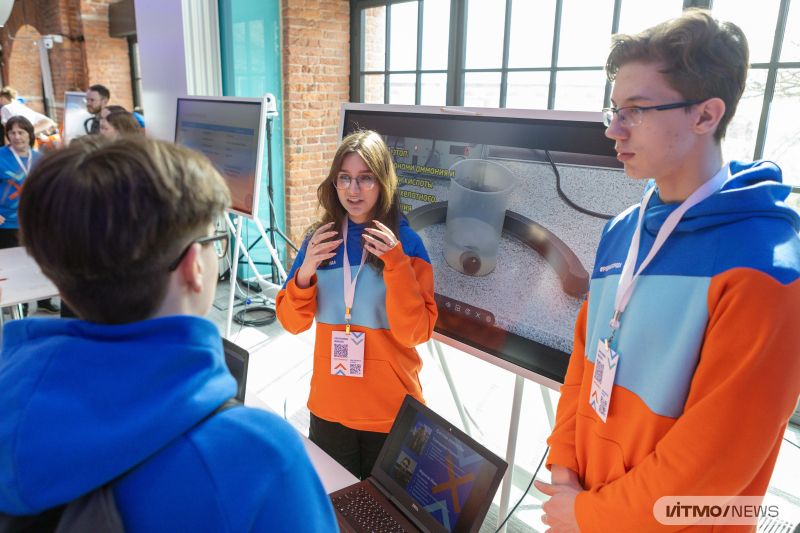
At the finals of the Multiplying Talents contest in St. Petersburg. Photo by Dmitry Grigoryev / ITMO.NEWS
Meet the winners
The award ceremony honoring those participants who scored the most points in individual and group tasks took place on April 21 in the Zifergaus gallery. Those students who had the largest combined points tally in both task types were declared the overall winners of the contest.
The winners received their diplomas and were offered internship opportunities at Gazprom Neft’s research facilities. They also were invited to special preliminary courses for future university students. Lastly, they will have up to 10 bonus points added to their total when applying to Russia’s leading technical universities, such as ITMO.
The Mathematics track
Dmitry Mamaev, an 11th-grade student from Tyumen, was declared the winner. He earned the most points out of all the participants of his track when solving the contest’s tasks.
The Petroleum Chemistry track
In the team competition, the winners among 10th- and 11th-graders were team KVN from the town of Megion. Students Kira Velieva, Viktoriya Shpirova, and Anastasiya Savich analyzed the reasons for formation of hydrates during the extraction and transportation of crude oil – and suggested a possible solution.
“We’ve developed two types of hydrophobic anti-corrosive coatings, one based on polystyrene and the other on polysiloxane. We chose these particular substances because they’re already being used in other hydrophobic surfaces (SLIPS), but we’ve decided to improve on the existing formula. As part of the experiment, we applied a polystyrene solution onto one metal plate, a polysiloxane solution onto another, and left the third untouched. Then, we placed all three plates into a corrosive environment. In the end, the two coated plates were left uncorroded. The wetting angle of the first one amounted to 95° and of the second – to 82°. This is a good result that shows us that both the plates are hydrophobic. In addition, both methods will be cheaper than the alternatives available today,” explains Kira Velieva, a member of the team and a 10th grade student.
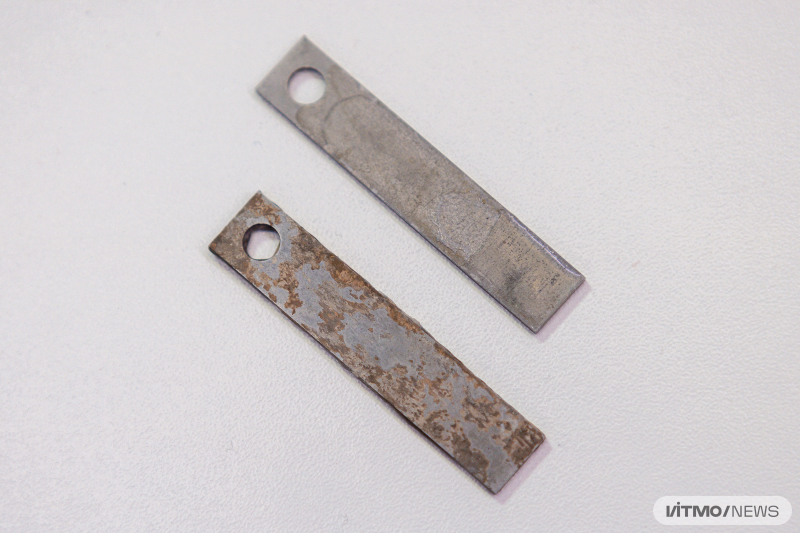
The project by team KVN. The lower plate is corroded while the top plate remains intact thanks to the team’s hydrophobic coating. Photo by Dmitry Grigoryev / ITMO.NEWS
Among 8th- and 9th-graders, team In&Khim emerged on top. Its two members are Alina Goroshkevich (Omsk) and Sofia Sofiech (Tyumen). They worked on the task of desalinating crude oil during the collection and processing stage.
In the individual competition, Makar Chepurnoi from the town of Tarko-Sale showed the top performance among students of grades 8 to 9 while Danil Bryksin from Orenburg gained the most points among grades 10 to 11. Danil Bryksin was also named the overall winner, having scored the highest in both individual and team competitions. Together with 11th-grader Oleg Chertkov, he developed a protective coating based on polystyrene polymers that could help prevent the accumulation of inorganic compounds on oil industry equipment.
“To be honest, I wasn’t expecting to win, but I think it wasn’t for nothing. I’m very glad. Here, I met a lot of new friends and gained a lot of experience in defending projects – as well as a pleasant bonus in the form of additional Unified State Exam points. For my future studies, I’m considering ITMO and Gubkin Russian State University of Oil and Gas,” says Danil.
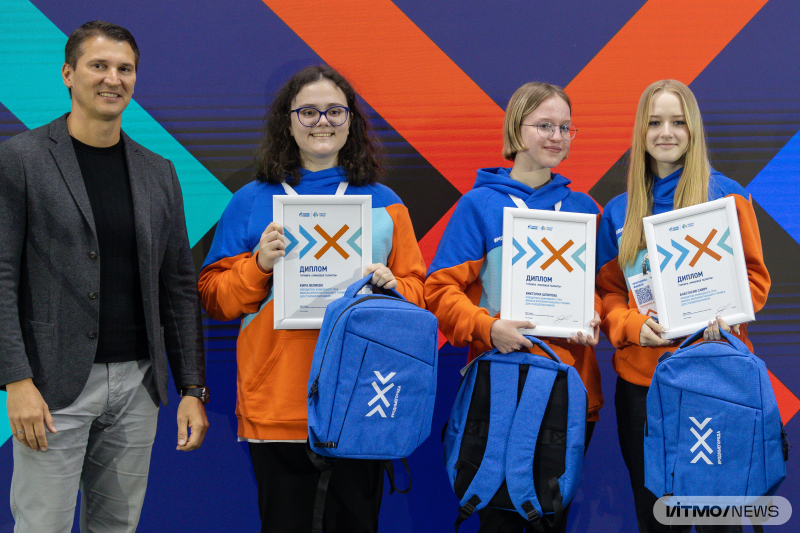
Kira Velieva, Viktoriya Shpirova, and Anastasiya Savich, winners of the team competition in the Petroleum Chemistry track, with Gazprom Neft director for technological development Alexey Vashkevich
The Engineering track
In the team competition, the first place among grades 8 and 9 went to team Ingria from St. Petersburg. Students Anastasiya Shumelenkova, Viktoriya Linkova, and Polina Guseva dealt with the reverse engineering of cylindrical cogwheels. The first place among grades 10 and 11 went to team VICTORIA (Omsk), made up of Savelii Novokreshchennyi and Artem Evtushenko. The highschoolers took on the task of reengineering an inflow control device with the help of metal-based 3D printing.
In the individual competition, Rashid Ibadov from the town of Muravlenko took first place among grades 8 to 9, while in the 10-11 bracket, several winners emerged: Sofia Skopintseva from Tomsk, Matvey Andreev and Nikita Baranenkov from Moscow, and Anastasiya Novikova from Megion. The latter was also named the overall winner of the Engineering track.
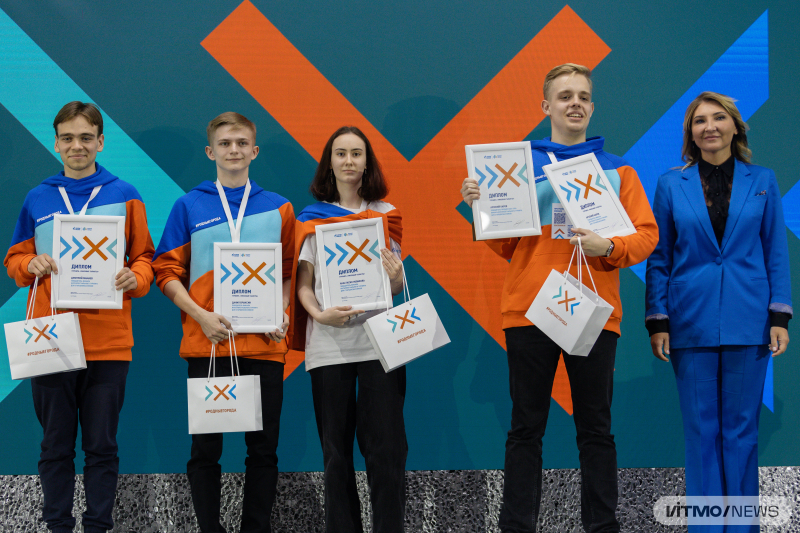
The overall winners of all four tracks with Yarina Sugakova, CEO of the Home Towns foundation
The IT in Oil & Gas Industry track
In the team competition among grades 8 and 9, the winner’s title went to team Meta from Orenburg: Alina Kushmukhametova, Maria Amelina, and Dilara Shudabaeva. The students took on the task of finding out how computer vision and video analytics can help detect leakage of colorless gasses.
As for grades 10 to 11, the first place went to team Alternativyaschie. Alexandr Lazarenko and Alexandr Bekoev from St. Petersburg, together with Olesya Bogdanova from Tomsk, used Internet of Things (IoT) technologies to develop a monitoring system for shuttered and decommissioned oil wells.
In the individual competition, the largest score among 8th- and 9th graders was gained by Alina Kushmukhametova from Orenburg, and among 10th- and 11th-graders – by Arseniy Karov from Tyumen, who was also named the overall winner of the IT in Oil & Gas Industry track.
